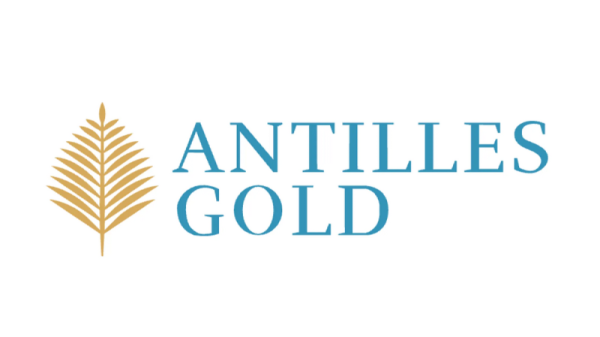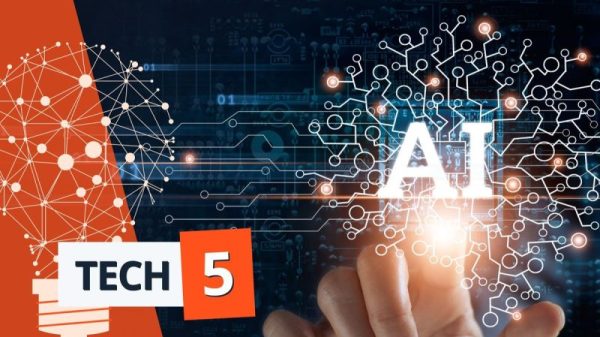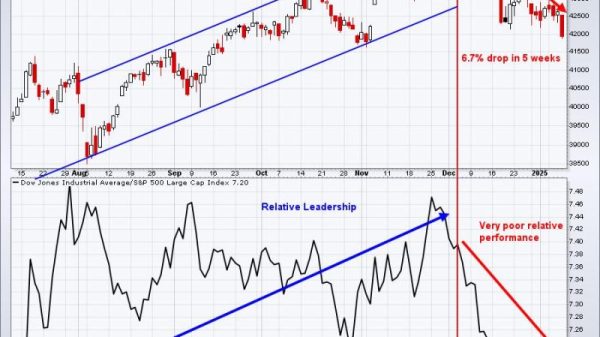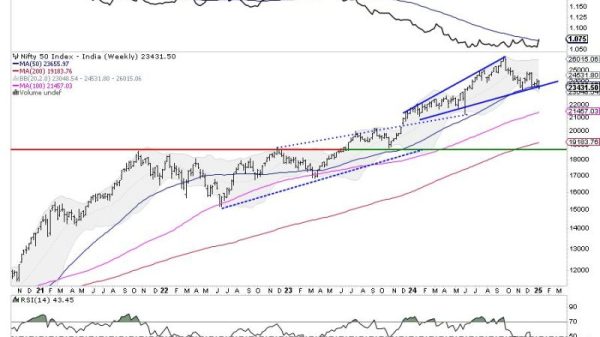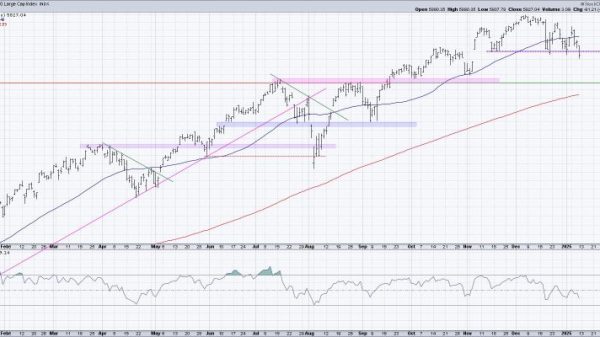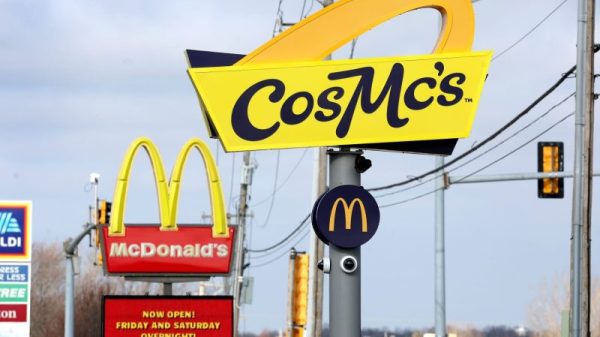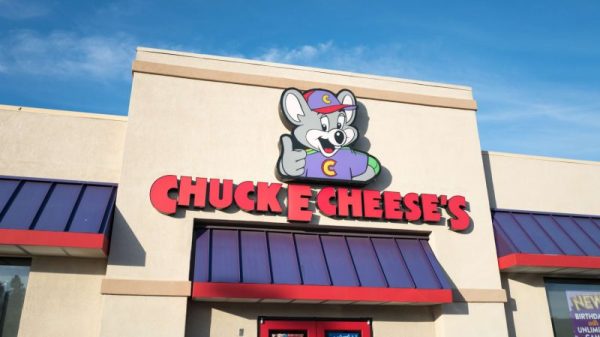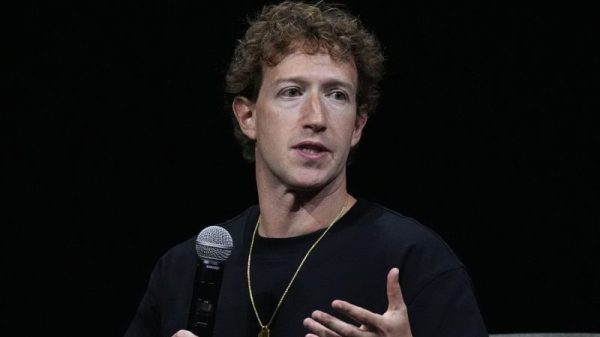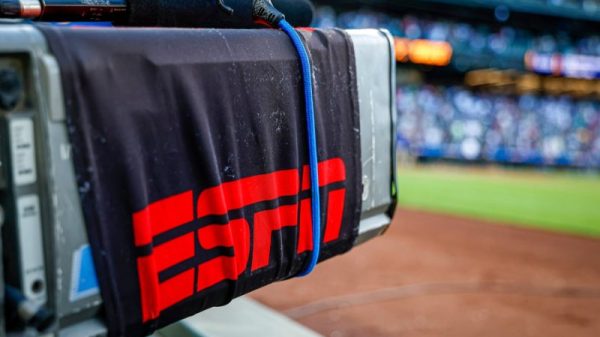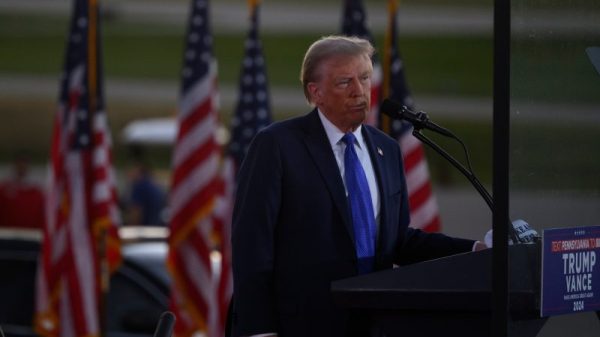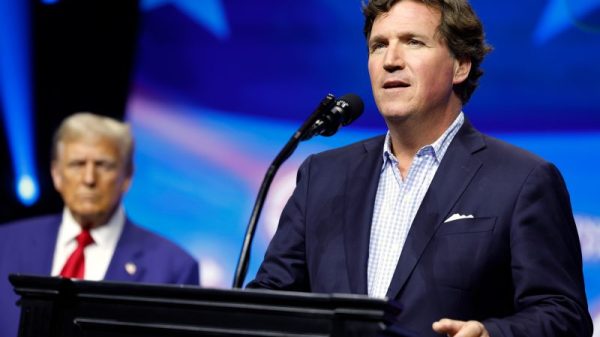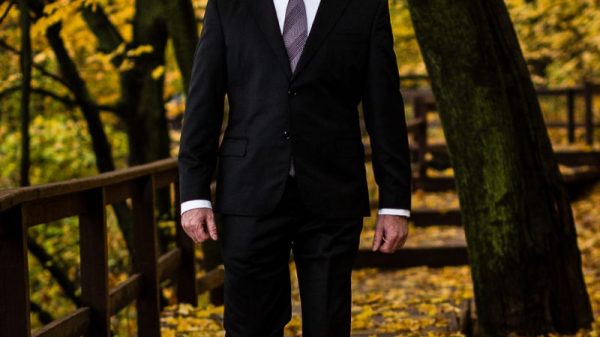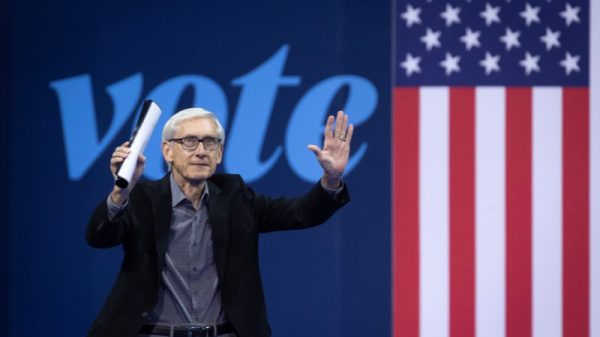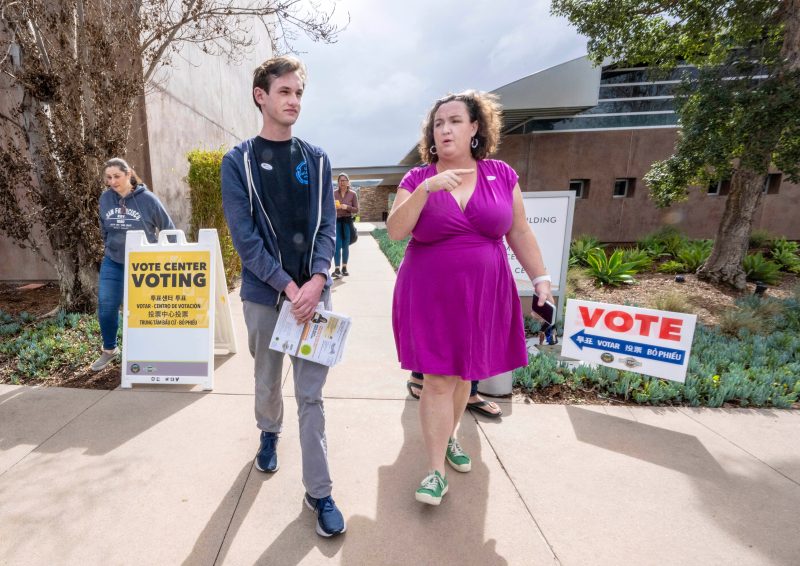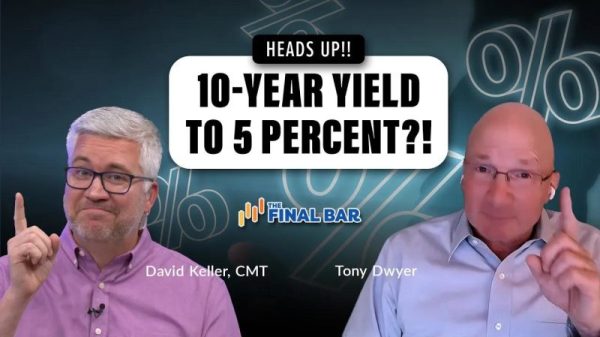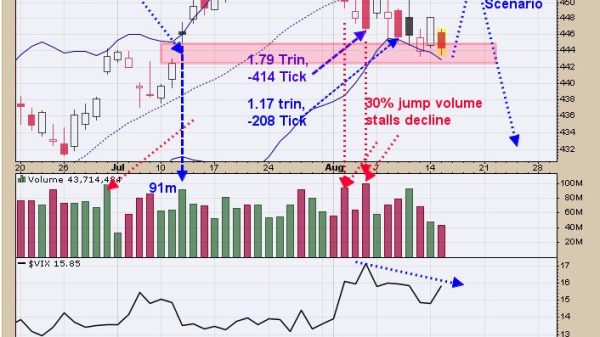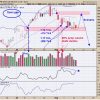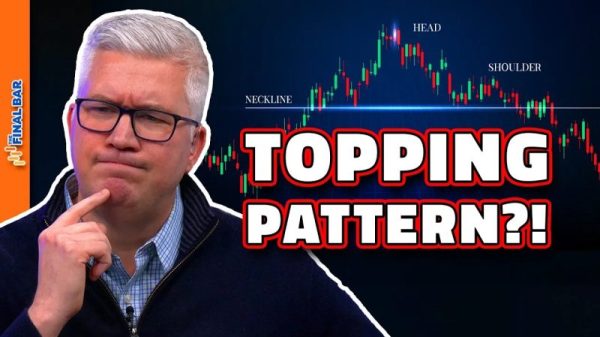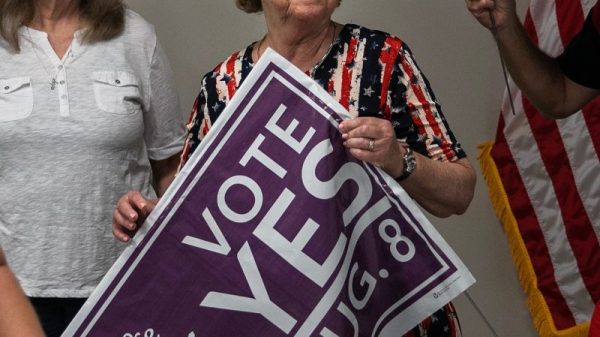LONG BEACH, Calif. — As Katie Porter high-fived her way to the microphone at a recent rally here with Taylor Swift’s “The Man” pumping from loudspeakers, two front-row fans greeted her bearing mini versions of the accessory she made famous: whiteboards, theirs bearing the hashtag #TeamKatiePorter.
“I just love how she stands up and represents like a middle-class liberal,” gushed LeAnne Wunsch of San Pedro, her custom whiteboard dangling from a string like a necklace as she recounted watching Porter shred the arguments of banking and pharmaceutical CEOs in congressional hearings. “She stands up to corporations, to rich people. She’s just so relatable.”
But Porter is finding that the outsider credentials she built in those viral moments as the relatable, minivan-driving, suburban mom-turned-interrogator in Congress are no match for the insider advantages of Adam Schiff, a longtime lieutenant of Rep. Nancy Pelosi, the former speaker of the House, who locked down the support of much of California’s Democratic establishment early last year.
The two popular Democrats, who are both prodigious fundraisers, had long been viewed as the probable victors Tuesday in California’s jungle primary, in which the top two vote-getters will advance to the general election regardless of party. But with Schiff, Porter and their Democratic colleague, Rep. Barbara Lee, splitting their party’s vote, Schiff has wielded his enormous war chest to boost support for their top Republican rival, former Major League Baseball player Steve Garvey.
Garvey surged to first place, ahead of Schiff, in a poll released Friday by the UC Berkeley Institute of Governmental Studies, even though the onetime first baseman for the Los Angeles Dodgers and the San Diego Padres has not aired any of his own ads and has barely been visible on the campaign trail. Data from Ad Impact shows that 60 percent of Schiff’s recent broadcast airings have mentioned Garvey as Schiff and his allies have spent more than $11 million on the airwaves elevating Garvey’s profile.
Porter, who is also being targeted with nearly $9 million in spending by a crypto industry-backed super PAC, noted the irony of her situation Saturday after six years in Congress fashioning her agenda around fighting corruption and the way in which corporate PAC donations influence politicians.
“People in their 20s and 30s and 40s feel like elections are about big money; they’re about shady money and dark money,” she said, the frustration palpable in her voice as she dropped off her ballot and accompanied her 18-year-old son to vote for the first time at a polling location in Irvine. “We’ve seen a lot of that in this election cycle in this Senate race. That is discouraging to younger people, because it makes them feel like — what’s the point of voting if $10 or $20 million in dark ads are going to influence the outcome of the election?”
In one final plot twist, Porter and her allies are incensed that after helping engineer Garvey’s rise, Schiff has spent the final days of the primary race fundraising off that surge that he helped fund, dispatching texts asking for donations by warning a “MAGA extremist” could be California’s next senator. “That’s the cynical cycle,” she said.
Schiff is campaigning in his final sprint across the state as though his contest with Porter and Lee is already over — keeping his focus on what he views as the threat to democracy posed by Trump in his potential return to the White House.
He became a celebrity to many Democratic voters — and a nightly presence on cable news — while managing Trump’s first impeachment trial, a role that Pelosi selected him for. As the former president has continued to attack him over the past year, Schiff has used those slights, including Trump’s nicknames for him like “pencil neck” and “shifty Schiff,” to fuel his small-dollar fundraising. “We beat him before; we will beat him again,” Schiff said Saturday at a union hall in Orange, “and he will never set foot in the Oval Office again.”
Though Garvey has refused to say whether he will vote for Trump again, Schiff has tried to paint the two men with the same brush: “He voted for Donald Trump repeatedly even after witnessing the chaos and extremism of Trump’s four years in office,” Schiff told his supporters. “We’re going to make sure he never sets foot in the Senate.”
Schiff has been able to keep his campaign focused on Trump in part because there are so few ideological differences between him, Lee and Porter. Though Schiff was a member of the Blue Dog Coalition — a caucus of moderate House Democrats — during his earlier years in Congress, he shifted left over the years — aligning himself with many of the priorities championed by the Congressional Progressive Caucus, including the Green New Deal and Medicare for All. Both Porter and Lee have helped lead that group — and have been quick to point out they championed some of the group’s priorities before Schiff did.
Schiff has also avoided engaging with Porter on her criticism that he took corporate PAC money in earlier races, except when she has directly challenged him on that topic in debates. (He has not accepted corporate PAC money in this race).
In a recent debate he echoed the attacks that have been aired on television by Fairshake, the super PAC backed by major players in the cryptocurrency industry. While Porter avoided taking corporate PAC donations, the ads from Fairshake have noted that she has taken contributions from people who worked at banking, pharmaceutical and oil companies.
“I don’t think Rep. Porter has been fully clear about her own record of taking thousands of dollars from people in the oil industry, thousands from Wall Street bankers, thousands from people in the Pharma industry, as OpenSecrets has revealed,” Schiff said. “The problem with purity tests, as Rep. Porter would like to establish, is that invariably the people establishing them don’t meet them.”
Touting the endorsements of Pelosi and more than 300 current and former elected officials in California, Schiff has framed his relationships with his colleagues as an asset — highlighting his ability to work within the system to advance legislation while obliquely referring to Porter’s more adversarial positioning as a problem.
“There’s nothing easier than putting your name on a bill,’ Schiff said, suggesting Porter lacked legislative accomplishments during a recent debate. “Where you see the real legislators is they write their own legislation.”
Some of Schiff’s establishment backers, such as former senator Barbara Boxer, have also mocked Porter’s promise to “shake up the Senate” — stating that kind of disruption is unnecessary at a moment when members are more often struggling to find consensus.
During a recent debate, Porter was also pressed to explain why 27 members of California’s House delegation had endorsed Schiff and only one, Rep. Robert Garcia of Long Beach, had endorsed her. Porter, who has said she didn’t go to Washington to make friends, reiterated that she is “not beholden to corporate special interests” and noted that her opposition to earmarks sets her apart from many of her colleagues: “I have had people who are powerful special interests push back; they fund these people’s campaigns and it affects what they do.”
But Schiff noted this weekend that it was unusual for so many of his House colleagues to get involved in a primary where three members of the delegation are running against one another: “They know who has the ability to get things done.”
“Congress is a place where you can’t do anything on your own. You have to be able to work with other people,” Schiff said after a rally Sunday morning in San Diego. “If you can’t work with other people, you can’t be effective. So this is a race about results versus just rhetoric.”
The recent Berkeley poll, co-sponsored by the Los Angeles Times, underscores that Porter could pose a threat to Schiff in November — and that Garvey would be a much weaker opponent. In a hypothetical two-candidate race in November, Schiff led with 53 percent to Garvey’s 38 percent, with 9 percent undecided. But if the race were between Schiff and Porter, they essentially begin the contest in a tie.
The low rate at which California’s more than 21 million voters are returning mail-in ballots thus far could spell trouble for Porter on Tuesday. A plurality of the ballots returned have been from voters who are 65 years or older, a dynamic that is likely to favor Schiff and Garvey. Polls have consistently shown a generational divide among Democrats — with younger Democrats favoring Porter and Lee, and older voters favoring Schiff.
Porter has pleaded with her backers to ramp up turnout, arguing it will be critical to ensuring that “California has a warrior in Washington.”
“We need a leader who doesn’t just talk about being a hero for democracy, we need a leader who is doing it by changing how Washington runs,” she said at the Long Beach rally, contrasting her approach with Schiff’s. “You can’t buy my vote. You have to earn it by showing me how you’re going to deliver for Californians.”


